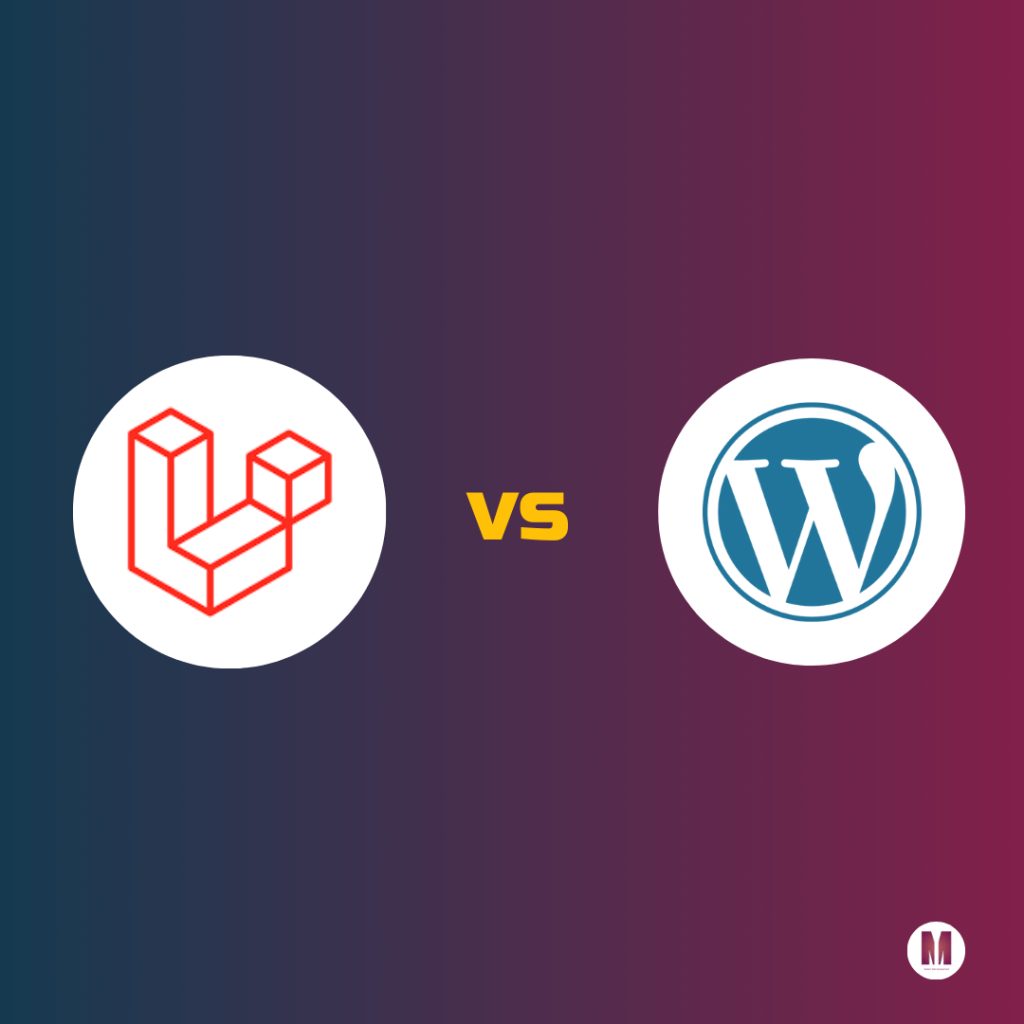
Whoever is planning to create a new website must be troubled with the greatest question: Laravel versus WordPress — which is the best platform for your website? Should you go for Laravel, the PHP powerful framework for building custom web applications, or choose WordPress from the whole world as the most popular content management system (CMS)? All the platforms have their own merits and demerits of using it. The final choice rests on the unique requirements of your project.
This post is for the purposes of elucidating the advantages and disadvantages of Laravel and WordPress, allowing you to make an informed choice based on your next website.
What Is the Difference Between Laravel and WordPress?
Let us now proceed to the core differences:
- Laravel is a full PHP framework for fully customized applications to develop from the bottom up. It bestows over your website’s architecture and controls itself very well regarding complex projects.
- WordPress is the most famous content management system (CMS) empowering nearly 43% of all websites in the world. The main features of WordPress are its user-friendliness and ready templates as a huge initial preference from users who want a quick setup.
Now that we have highlighted the fundamentals, let’s break down and use each leg on what it is for.
When to Use Laravel?
If you have developed a custom application or require greater flexibility during the development process, perhaps Laravel is an option for you. Here, why:
Laravel is Ideal for:
- Custom Applications: If your project requires unique features or complex functionalities, Laravel’s customization capabilities are unparalleled.
- API Development: Laravel excels in developing robust and secure APIs for mobile or web applications.
- Scalability: Laravel is perfect for projects that need to scale over time. Whether you are building a small application that will grow or starting with a large-scale project, Laravel offers the necessary tools for seamless scalability.
Advantages of Laravel:
- Full Control: You have complete control over your website’s architecture, allowing you to create highly customized solutions.
- Strong Security Features: Laravel is known for its strong security protocols, making it an excellent option for applications that handle sensitive data.
- Unique Functionality: Laravel makes it easier to implement complex and unique functionalities that would be difficult to achieve with out-of-the-box platforms.
Disadvantages of Laravel:
- Requires Advanced Programming Knowledge: Laravel is a developer’s framework, meaning you will need advanced programming skills or a development team to work with it effectively.
- Longer Development Time: Since you are building the site from scratch, the development time will be longer compared to using a pre-built system like WordPress.
When to Use WordPress?
WordPress is often the preferred solution for content-heavy websites such as blogs, portfolios, or online stores. Its ease of use and extensive plugin ecosystem make it a great choice for beginners and small businesses.
WordPress is Ideal for:
- Content-Heavy Websites: Whether it’s a blog, news site, or portfolio, WordPress excels at managing content effortlessly.
- E-Commerce: Thanks to plugins like WooCommerce, WordPress makes setting up an online store straightforward and efficient.
- Quick Launch: If you need to get a website up and running quickly, WordPress allows you to launch in a matter of days, not weeks.
Advantages of WordPress:
- Easy Setup: WordPress is known for its user-friendly interface and easy setup, even for non-technical users.
- Plugin and Theme Availability: There are thousands of plugins and themes available, allowing you to customize your site without needing to code.
- SEO-Friendly: WordPress has built-in SEO features, and with plugins like Yoast SEO, optimizing your site for search engines becomes even easier.
Disadvantages of WordPress:
- Limited Flexibility: While WordPress is flexible for many use cases, it can be restrictive when it comes to highly customized features.
- Slower Performance: If not properly optimized, WordPress websites can suffer from slower loading times, especially with multiple plugins installed.
Laravel vs. WordPress: Key Differences
Now, let’s compare the key differences between Laravel and WordPress:
- Flexibility: Laravel provides full control and customization, while WordPress relies heavily on plugins for extending functionality.
- Development Time: WordPress is quicker to implement for simpler sites, whereas Laravel requires more time due to its custom development nature.
- Scalability: Laravel is better suited for large, complex projects that need to scale, while WordPress is ideal for smaller, content-driven websites.
Which Platform Should You Choose?
The choice between Laravel and WordPress depends on the type of project you are working on:
- Choose Laravel if you need a highly customized application, API development, or scalability from the ground up.
- Choose WordPress if you are building a content-focused website like a blog, portfolio, or e-commerce store and need to launch quickly.
Conclusion: Need Help Deciding?
Still unsure whether to choose Laravel or WordPress for your next project? I can help! With years of experience in both platforms, I offer free consultations to discuss your project needs and recommend the best solution for you.

Hi, I’m Ioanna, a freelance web developer with a passion for WordPress development, Laravel application development, and Technical & On-Page SEO optimization. I specialize in creating custom solutions tailored to your unique needs, whether it’s designing a fully optimized WordPress site, developing powerful Laravel applications, or improving your website’s performance and SEO.

Take your online presence to the next level! Contact me now!
Call me now at +49 15735463775 or send me an email at contact@iomitroulaki.dev, to discuss your project further!

